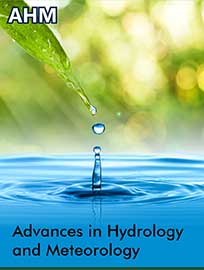 Mini Review
Mini Review
Reuse of Water for Sustainable Irrigation of the “Irailaren 23” square in Erandio, Spain
Natalia Alegría1*, Igor Peñalva1,Charles Pinto2 and María Urrestizala1
1Energy Engineering Department, Bilbao School of Engineering, University of the Basque Country, Spain
2Department of Mechanical Engineering, Bilbao School of Engineering, University of the Basque Country, Spain
Natalia Alegría, Energy Engineering Department, Faculty of Engineering, University of the Basque Country, Spain.
Received Date:October 03, 2023; Published Date:October 25, 2023
Abstract
The European Water Charter, proclaimed by the Council of Europe in Strasbourg on May 6, 1968, was a statement of principles for proper water management in which it was stated that “freshwater resources are not inexhaustible” [1]. To speak of Responsible Consumption is to address the problem of hyper-consumerism in developed societies and powerful groups in any society, which continue to grow as if capacities were infinite. To this end, at the Johannesburg summit in 2002 [2], the following was pointed out: “15% of the population living in high-income countries are responsible for 56% of the world’s total consumption, while the poorest 40% in low-income countries are responsible for only 11% of consumption”. On the other hand, the Royal Society’s report of 2000 [3] noted that current consumption trends are unsustainable, that there is a real need to reduce consumption and that “to preserve human well-being in the long term, people need to move towards new ways of meeting human needs, adopting patterns of consumption and production that maintain the Earth’s life-support systems”. It is therefore necessary to apply the three R’s rule: Reduce, Reuse and Recycle.
-
Natalia Alegría*, Igor Peñalva,Charles Pinto and María Urrestizala. Reuse of Water for Sustainable Irrigation of the “Irailaren 23” square in Erandio, Spain. Adv in Hydro & Meteorol. 1(4): 2022. AHM.MS.ID.000516.
-

This work is licensed under a Creative Commons Attribution-NonCommercial 4.0 International License.






